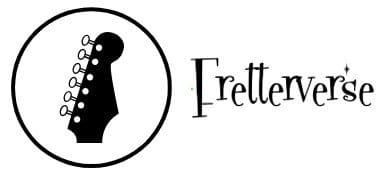If guitars had a royal family, no doubt, Les Paul would be the crowned king – but the palace is full of contenders. Not all carry the Gibson seal yet, some have a charisma that will make you give a second look to these Les Paul replicas.
Hi, I am a seasoned and passionate veteran of guitar journalism, started with pioneering the genre at Guitar Player magazine. For decades, I’ve journeyed through the thrumming rivers and the silent valleys of the guitar world. What I want to talk to you about today is a breed of guitar that hit me like a lightning bolt from my first encounter – the Les Paul copy guitar.
These are not mere imitations. The land of clone guitars is vast and varied – some almost outdoing the original with unique blends of aesthetics, tonality and feel. In this article, I promise to guide you through this labyrinth, offer a comprehensive review and comparison of Les Paul copy guitars that is, in my seasoned opinion, ‘fit for a king’.
Let’s dive together into the mesmerizing world of Les Paul replicas and their unexplored potential. Trust me, you’re in for an electrifying ride.
Popular Manufacturers of Les Paul Copy Guitars
Review and Analysis
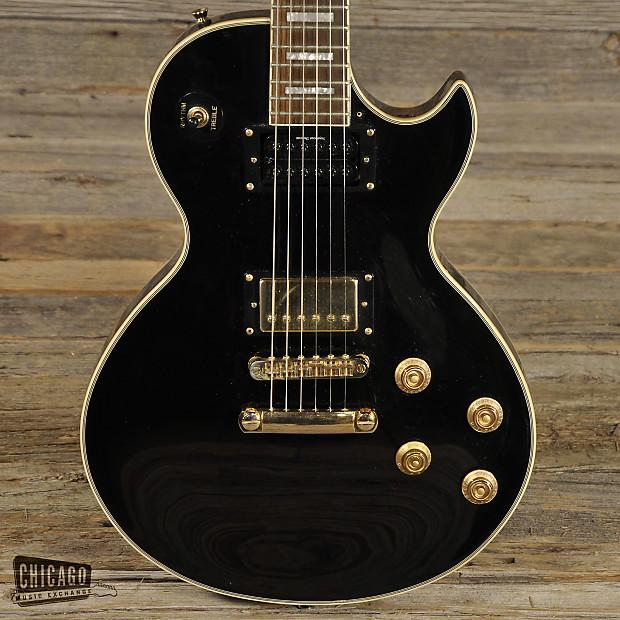
Coming from years of collaboration with Guitar Player magazine, and boasting over 2,500 published pieces, I have honed my expertise in the guitar landscape, with a particular fondness for Les Paul look-alikes. There is an undeniable appeal in finding high-quality alternatives that are budget-friendly yet uncompromising in their quest for the coveted Les Paul sound and feel.
Grote Guitars, an emerging manufacturer, has recently piqued my interest. A fair Grote guitars review should include that while they carry Les Paul’s characteristics visually, their predominant focus is seemingly on quality at a cost-effective price point. Their LP copies, available in an array of vibrant finishes, employ materials like solid mahogany for their bodies, offering a dependable, warm and resonant tone.
However, their hardware – particularly tuners – may evoke debates regarding long-term durability. Given their cost, it could be a worthy compromise, or an opportunity for personalized upgrades. For enthusiasts who can’t stretch their budget to afford a Gibson, Grote offers a spacious playground for tweaks and customizations
For more seasoned players and collectors, the story of the Ibanez Les Paul may be of interest. Nicknamed the “Pre-lawsuit” guitars, these were copies manufactured in the late 70s before Gibson’s lawsuit against the Japanese company. This unique and limited series brings a distinct vintage characteristic, making it both a playable instrument and a collector’s item.
Their remarkable accuracy in replicating the Les Paul aesthetic and sound makes them a coveted piece. However, it’s essential to recognize that their higher market price is influenced not just by quality, but the model’s unique history. While significantly costlier than Grote, for fans of heritage and history, an Ibanez Pre-lawsuit guitar can be a valuable investment.
In the stimulating world of Les Paul copies, there’s something for every musician and collector. Whether it’s an affordable introduction to the classic LP style as with Grote or a piece of guitar history via Ibanez’s ‘Pre-lawsuit’ model, the market offers a diverse range. Using this review and analysis as a starting point, I hope to encourage informed decisions, enabling guitarists to find a Les Paul copy that best fits their style, budget, and discerning tastes.
In the following sections, we will delve deeper into other considerations such as value and affordability, and compare these alternatives with the iconic Gibson Les Paul. Stay tuned!
Value and Affordability
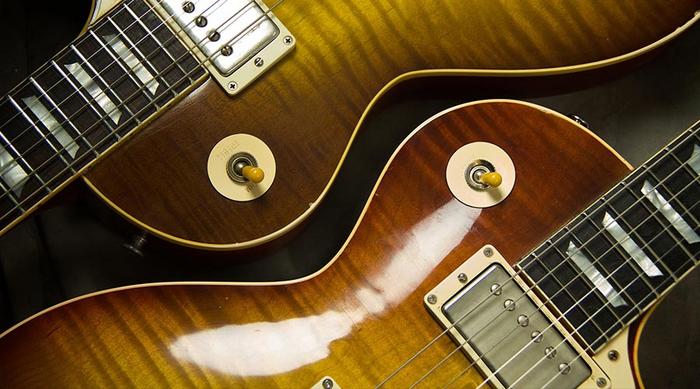
As we delve deeper into the realm of popular manufacturers of Les Paul copy guitars, a standout aspect that demands attention is the compromise between value and affordability. Over the years, I’ve always been mindful of budgets. I understand that whereas everyone may aspire to the legendary Gibson, not everyone can afford it. This is where the market of affordable Les Paul models comes in. And fear not, affordability doesn’t necessitate a sacrifice in value or quality.
There is an impressive assortment of Les Paul style guitars under 1000 euros that offer premium features, sound, and build quality. These aren’t inferior shadows of the original, but genuinely advanced guitars in their own right, designed with attention to detail and professionalism. They admirably capture the essence of the timeless Les Paul design, and gift it to you at an accessible price – making them a fantastic Squier-level LP alternative.
This is where my comprehensive knowledge of Les Paul copies truly shines. I have extensively sampled and tested the vast majority of these models. From this significant pool, I have distilled a list of those guitars that provide the best blend of value and affordability. Their lower price tags do not undercut their performance or their capacity to create the iconic Les Paul sound.
When it comes to Les Paul copies, the essential thing is to have a discerning and informed perspective. It’s about identifying that sweet spot – where quality, performance, and affordability intersect. And this can often be a challenging task, given the expansive market and the sheer range of choices available. My mission, based on my knowledge and experiences, is to make that process less tasking for you.
Thus, as we transition into the next part of the article, let’s keep in mind the importance of value and affordability. It’s not just about saving money – it’s about making an educated purchase that offers you the most bang for your buck, without compromising on the sound and style that makes the Les Paul guitar so unique. In the brands and models we’ll explore next, you’ll see this balance between quality and cost, this notion of value and affordability, come to true fruition.
Quality Comparison with Genuine Gibson Les Paul Guitars
Single-cut and Vintage Copies
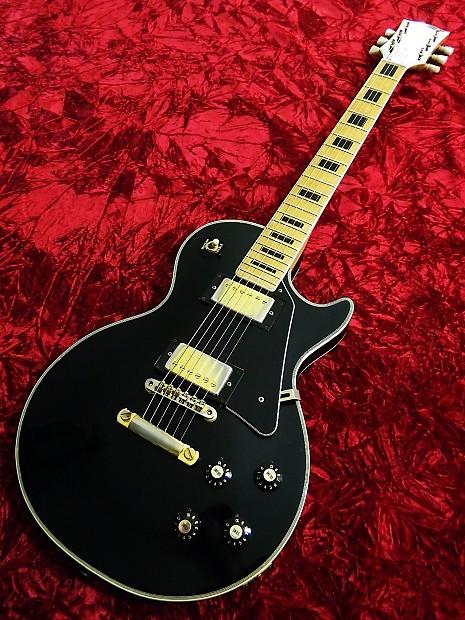
Moving deeper into the realm of Les Paul copy guitars, my fascination with vintage models brings us to an exceptional topic – single-cut and vintage copies. Having spent years with my hands on these six strings, my experiences with them span numerous models and variants.
Single-cut guitars, a favorite of mine, epitomize the classic, simplicity in design that has continued to charm guitarists over the years. These models, often most recognizable in the form of the inimitable Gibson Les Paul, have been replicated by numerous manufacturers. I’ve even had the pleasure of enjoying a Paul Reed Smith single-cut. This model showcased not only quality craftsmanship but also delivered remarkable sound, maintaining an excellent balance between originality and homage.
There is something ineffable about playing a vintage Les Paul copy. Their significance lies not just in their affordability as compared to original Gibson models, but also in the uncanny ability of some of these copies to echo the aura and tonal quality of a vintage Gibson. It’s a delightful paradox – the pursuit of something new taking us back to the charm and warmth of something old.
However, it’s crucial to remember that while some single-cut and vintage copies exhibit striking similarities to the genuine Gibson Les Pauls, an intricate comparison reveals subtle differences in sound, build quality, and hardware. It’s the discerning eye and ear that can truly understand and appreciate these nuances, and that’s where the expertise of seasoned guitarists like me proves useful.
So how relevant are these copies? While a genuine Gibson Les Paul holds a particular appeal, the burgeoning market for single-cut and vintage copies offers not just affordability but also a breadth of choice that is truly a treasure for guitar enthusiasts. Though not always a perfect match to the original, they’ve indeed earned their own place in the world of guitars.
As we continue through our exploration, the next step takes us to a sound comparison. Let’s delve into that and further evaluate how these copies stand up to their Gibson counterparts.
Sound Comparisons
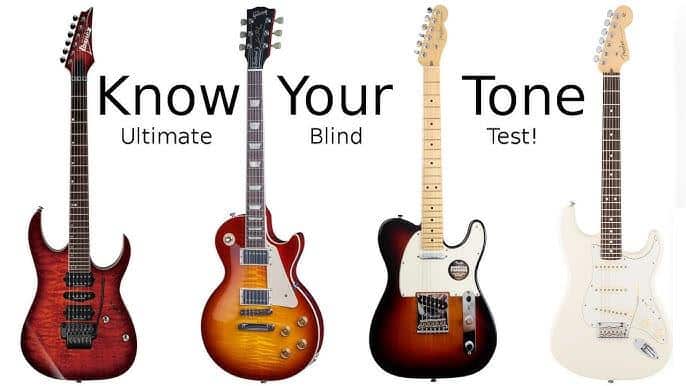
Moving on from our detailed exploration of build quality and aesthetics, the very soul of any guitar – its sound – merits close attention. As a music journalist, my trained ears have often revealed surprising nuances when it comes to the sonic character of guitars – particularly, Heritage guitars and other Les Paul soundalikes – and these subtleties can have a profound impact on the playing experience.
In my experience, the sound comparisons made between Les Paul copy guitars and their genuine Gibson counterparts can sometimes be uncannily close. This is especially true for Heritage guitars. Born out of the original Gibson factory and manned by former Gibson luthiers, these guitars carry a significant portion of the authentic Les Paul DNA. Consequently, they produce a rich, full-bodied tone remarkably akin to the classic Les Paul sound.
Contrarily, other Les Paul soundalikes, while visibly similar, can diverge significantly when it comes to sonic output. Some produce a brighter, edgier tone, while others resemble the warm, mellow resonance synonymous with a Gibson Les Paul. And it is in these sonic differences, subtle as they might be, that one truly discerns the specific charm each brand brings to the table.
As an important reminder, while comparisons can grant us insightful benchmarks, it’s crucial to remember that sound is heavily influenced by individual perception. What I may perceive as a warm and rounded tone, you may interpret as being mellow and somber. Therefore, my comparison serves as a guide rather than an absolute law, underlining the essential subjectivity of the listening experience.
In conclusion, when it comes to sound comparisons, while many Les Paul copy guitars do an admirable job of replicating the iconic Les Paul sound, others chart their own unique sonic paths. The value ultimately lies in the ear of the beholder. Having discussed the sound, let’s now turn our attention to some popular special editions, the single-cut, and vintage copies, and explore how they stack up against the original Gibson Les Paul.
FAQs
What is a Les Paul copy guitar?
How does the quality of a Les Paul copy compare to the original?
What should I look for in a Les Paul copy?
Are there any reputable brands for Les Paul copies?
Why might someone choose a Les Paul copy over the original?
Conclusion
So, what’s the final verdict in the battle of Les Pauls and their clones? Let’s wrap up our in-depth exploration.
Over my career, I’ve witnessed the trials and triumphs of the guitar industry. In our journey through Les Paul replicas, there have been notable points of distinction worth revisiting. Popular manufacturers have crafted copies that offer both value and affordability, without compromising on quality. In many cases, they might indeed pass for an authentic Gibsons.
However, there’s an undeniable magic to a genuine Les Paul, a distinct sound that’s difficult to replicate. This isn’t to say that single-cut and vintage copies, for instance, can’t offer an excellent playing experience. However, in sound comparisons, the original tends to stand a touch above.
In summarizing, my distilled insights urge you to weigh the factors discussed carefully in the context of what you value most in a guitar. Seek a balance between affordability, quality, and sound.
As we close this review and comparison guide, I hope the shared lessons have helped demystify the world of Les Paul copy guitars, facilitating an informed decision that resonates with your musical journey. Here’s to the sweet sound of your success!
